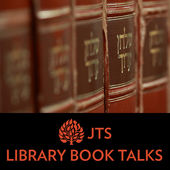Watch the event video at
http://www.jtsa.edu/the-art-of-mystical-narrative-a-zohar-symposiumIn The Art of Mystical Narrative: A Poetics of the Zohar (Oxford University Press, 2018), Dr. Eitan Fishbane reveals the Zohar as an extraordinary narrative—the tale of a wandering kabbalist sage seeking wisdom in ancient Galilee—a fiction invented by 13th-century Jewish mystics in Spain. Calling it “one of the greatest works of world religious literature,” Dr. Fishbane explores the Zohar’s storytelling through the various lenses of literary criticism, clarifying its deep integration with mystical theology.
This event features a discussion of the narrative and poetic features of the Zohar in the context of comparative literature and spirituality, marking the publication of Dr. Fishbane’s new book, with:
Dr. Lawrence Fine, Irene Kaplan Leiwant Professor Emeritus of Jewish Studies, Mount Holyoke College
Dr. Sharon Koren, Associate Professor of Medieval Jewish Culture at Hebrew Union College-Jewish Institute of Religion, New York
Dr. David Roskies, Sol and Evelyn Henkind Chair in Yiddish Literature and Culture, JTS, and co-founder of Prooftexts: A Journal of Jewish Literary History
Moderated by Dr. David Kraemer, Joseph J. and Dora Abbell Librarian and Professor of Talmud and Rabbinics, JTS
The panel is followed by remarks from Dr. Fishbane and an audience Q&A.
